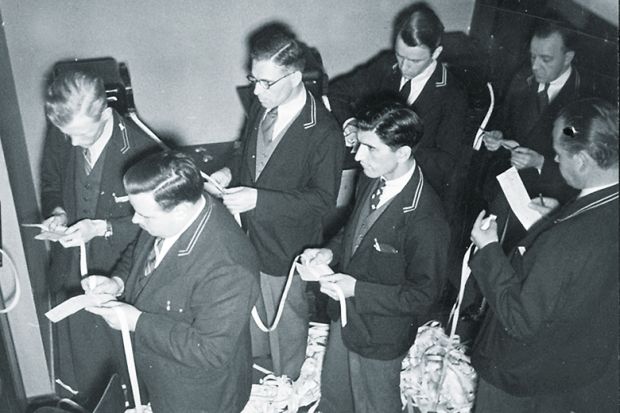“Confusing” rules that have led UK universities to monitor and record the whereabouts of foreign employees should be scrapped, an MP has argued, after it emerged that the Home Office has no use for the data.
Campaigners have warned that increasing reports of higher education institutions demanding that international staff account for their time using electronic calendars and even threatening home visits are “discriminatory” and foster a “hostile environment” in academia.
Institutions have argued that they are required to conduct the checks to comply with Home Office guidelines, but now it has emerged that the department does not collect absence data in any organised way.
Submitting a written parliamentary question, Layla Moran, Liberal Democrat MP for Oxford West and Abingdon, asked what guidance the department issues to universities “in respect of the monitoring the whereabouts of international employees and students on sponsored visas”.
In response, Caroline Nokes, the immigration minister, referenced official guidelines advising employers to report visa-holding employees’ absences after a 10-day period.
However, she added, “information on the number of foreign members of staff and students reported to UK immigration authorities for failing to declare their attendance and time spent off campus is not collated on Home Office systems in a manner which can be reported on, and to do so could only be achieved at disproportionate cost by examination of thousands of records”.
Speaking to Times Higher Education, Ms Moran said that the response only furthered arguments that government guidelines were “confusing”, resulting in widely varied and subjective attendance policies across campuses that “just need to stop”.
“Generally, the universities do it under duress. If they had their way they would be open and not have to do any of that,” Ms Moran argued. “It does not chime with the way academics think and work. The guidelines are very unclear, and we urgently need more investigation as to whether they are compliant with current legislation.”
One of the institutions under scrutiny is the University of Edinburgh, which said two years ago that it would monitor the location of all staff, not just those from abroad, in part to avoid potential discrimination.
Speaking to THE, one holder of a Tier 2 “skilled worker” visa at Edinburgh suggested that, while all employees are asked to mark their attendance on campus through an internal system, it is only certain foreign staff members who are additionally expected to share their calendars with the human resources department.
The staff member, who asked not to be named, added that the university also conducted “spot checks” whereby administrators scrutinise individuals’ diaries for incomplete entries.
“At the early stage of implementation, one of my colleagues was asked to contact HR from their office phone,” the employee told THE. “It was not clear what the sanctions would be if they couldn’t do it, [but] it was pretty distressing.”
An Edinburgh spokesman said that there remained “an expectation that all our schools have simple and appropriate ways of ensuring that staff share relevant information about absence from the office on a consistent basis”.
“This is in line with our commitment to treating all staff fairly and equally, regardless of nationality, and is in line with good employment practice,” the spokesman said. “If we are unable to confirm the location of staff on Tier 2 or 5 visas via these steps, we will then contact them directly to advise on how best to stay in touch.”

